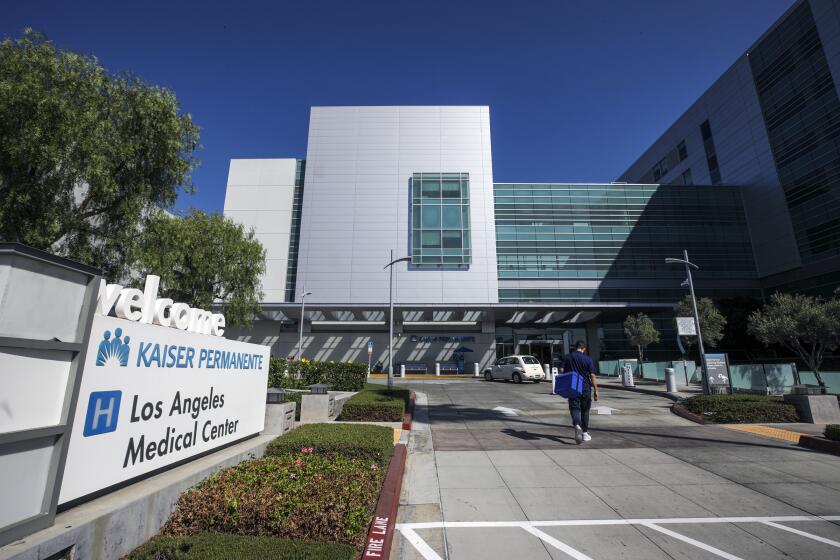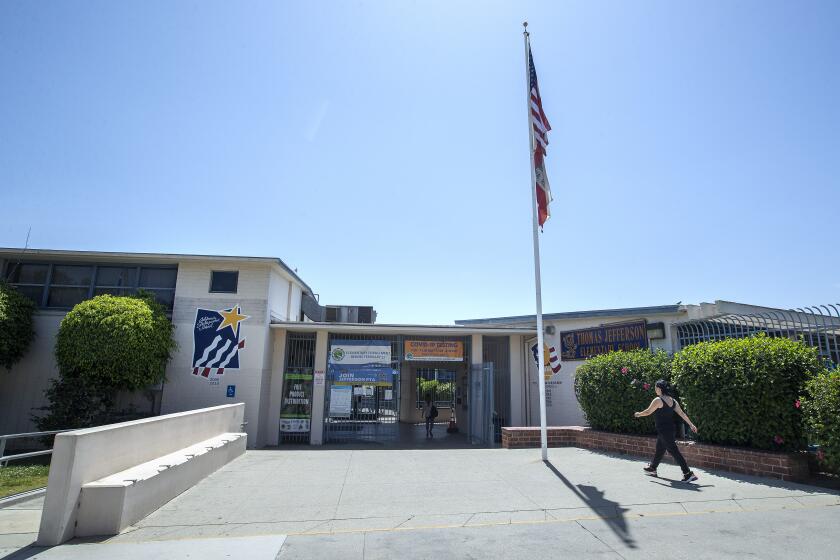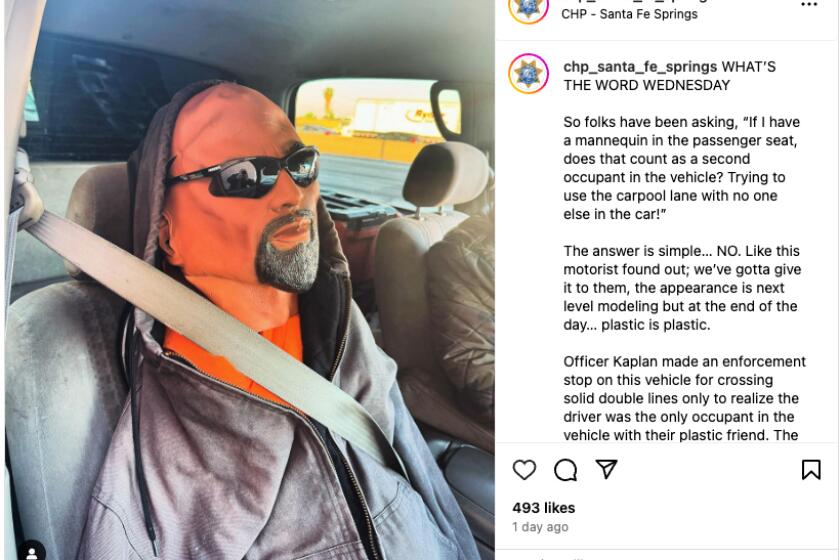Anaheim Puts Out a Call for Hard-to-Find 911 Dispatchers
Anaheim has such a shortage of police dispatchers that earlier this month the City Council approved doling out up to $500 to any city employee who brought in a qualified candidate.
But it’s not easy money.
Only seven of 1,359 applicants have made the final cut in the last two years, said Human Resources Director Dave Hill.
“This shortage of 911 dispatchers is a widespread problem nationwide and here in California. [In Anaheim] it is more acute today than it has been,” he said.
Anaheim’s dispatcher program is arduous, and candidates drop out at every step of the way, Hill said. The skills test stumps some candidates. Background checks don’t pan out. And the job just isn’t for some.
“It takes just the right kind of person to fill that job,” said Anaheim Police Capt. Craig Hunter, who oversees the dispatchers.
Dispatch supervisor Kurt Wallace, a seven-year veteran, said dispatchers must deal with many calls concurrently. On Wednesday, for example, the dispatch center fielded 1,400 calls with about five dispatchers on duty per shift -- two less than the number authorized. And if the volume were not overwhelming, dispatchers must know radio codes for everything from lunch breaks to loose dogs to robberies.
And they practically have to memorize a map of the city -- all major blocks and cross streets. One dispatcher-in-training sat in the call center last week with stacks of flash cards.
Often, things are beyond a dispatcher’s control.
“One of the hardest parts of being a dispatcher is that you often don’t feel like you’re helping enough,” Wallace said. “You’re exposed to a lot of negative things.”
But there are perks. Employees alternate between working three-day and four-day work weeks usually in 12-hour shifts.
Most people see their work pile up when they go on vacation, dispatcher John Carter said, but “not us. It’s fresh every day. You don’t have an inbox.”
And every day is different, Wallace said. “For anybody who wants an adventure or a change of pace, that would be this job.”
Starting salaries in Anaheim range from $41,808 to $50,814.
Despite the stress, there are lighter moments, such as when callers ask how long to roast a turkey, ask for directions or simply want to know whether an earthquake just occurred.
Once, Carter said, he saved a wedding.
A distraught bride dialed 911 when the business altering her wedding gown was closed. Carter tracked down the owner, who opened up the shop.
Carter helped then, but many times dispatchers warn callers that 911 is for emergencies only.
“It’s a job where if you want to help somebody, you really have the potential,” Wallace said. “When the world is crashing down around them, you can be the one person that helps.”
Dispatchers are often the public’s first contact with emergency personnel, Hunter said. How fast police respond can be directly related to how well-staffed the department is and how quickly dispatchers can process the information.
“Communication is the key to everything,” he said. “That’s how we provide service.”
Noting that departments across the country were having difficulty hiring and retaining dispatchers, the International Assn. of Public-Safety Communications officials formed a task force in 2000 to study the issue.
The shortage began in 1999, when the country’s unemployment rate plummeted. And qualified workers were lured by technology-based jobs and salaries that the government could not match, the study said.
The study, based on a survey of 470 respondents, concluded: “The crisis in recruiting and retaining 911 public safety call takers/dispatchers has reached a point where 911 needs 911.”
Most dispatch centers were operating at 60% of their authorized work force, the study found.
More to Read
Start your day right
Sign up for Essential California for news, features and recommendations from the L.A. Times and beyond in your inbox six days a week.
You may occasionally receive promotional content from the Los Angeles Times.







